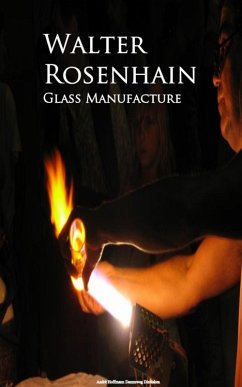The present volume on Glass Manufacture has been written chiefly for the benefit of those who are users of glass, and therefore makes no claim to be an adequate guide or help to those engaged in glass manufacture itself. For this reason the account of manufacturing processes has been kept as non-technical as possible; no detailed drawings of plant or appliances have been given, and only a few illustrative diagrams have been introduced for the purpose of avoiding lengthy verbal descriptions. In describing each process the object in view has been to give an insight into the rationale of each step, so far as it is known or understood, and thus to indicate the possibilities and limitations of the process and of its resulting products rather than to provide a detailed guide to the technique of the various operations. The practical aim of the book has further been safeguarded by the fact that the processes described in these pages are, with the exception of those described as obsolete, to the author's definite knowledge, in commercial use at the present time. For this reason many apparently ingenious and beautiful processes described in earlier books on glass have not been mentioned here, since the author could find no trace of their employment beyond the records of the various patents involved. On the other hand the readervi must be warned to bear in mind that the peculiar conditions of the glass manufacturing industry have led to the practice on the part of manufacturers of keeping their processes as secret as possible, so that the task of the author who would give an accurate account of the best modern processes used in any given department of the industry is beset with great difficulties. The author has endeavoured to steer the best course open to him under these circumstances, and he would appeal to the paucity of glass literature in the English language as evidence of the difficulty to which he refers.
Dieser Download kann aus rechtlichen Gründen nur mit Rechnungsadresse in A, B, BG, CY, D, DK, EW, E, FIN, F, GR, H, IRL, I, LT, L, LR, M, NL, PL, P, R, S, SLO, SK ausgeliefert werden.


